This article was co-authored by Kelli Miller, LCSW, MSW. Kelli Miller is a Psychotherapist based in Los Angeles, California. Kelli specializes in individual and couples therapy focusing on relationships, depression, anxiety, sexuality, communication, parenting, and more. Kelli also facilitates groups for those struggling with alcohol and drug addiction as well as anger management groups. She is the author of “Professor Kelli’s Guide to Finding a Husband” and the award-winning and best-selling book “Thriving with ADHD”. Kelli co-hosted an advice show on LA Talk Radio and is a relationship expert for The Examiner. She received her MSW (Masters of Social Work) from the University of Pennsylvania and a BA in Sociology/Health from the University of Florida.
There are 9 references cited in this article, which can be found at the bottom of the page.
This article has been viewed 1,516,420 times.
Sometimes, it's easy to feel that nobody cares about you. Even the most popular and famous people have doubts about whether or not people close to them actually care. Learn how to overcome these moments of doubt, and value yourself for who you are. If you often feel worthless or unloved, take steps to improve your life.
Counselor Paul Chernyak reminds us: "Be proactive and start inviting people to join you. You will be surprised by how many positive responses you will get. If you start to care about others, you will start noticing that others will care about you in return."
Steps
Finding Support and Self Worth
-
1Develop self-compassion.[1] Developing your self-compassion can help you to feel better about yourself overall. It can also help you to see more positive traits in other people. Some things you can do to develop self-compassion include:
- Treating yourself as you would treat a small child
- Practicing mindfulness
- Reminding yourself that you’re not alone
- Giving yourself permission to be imperfect
-
2Fight feelings of worthlessness. People who feel worthless often can't accept that anyone cares about them. Remind yourself that you are worth caring about, no matter how you feel or what anyone says to you. Practice acknowledging negative thoughts then letting them go.[2]
- Think about how you respond when someone offers you support. Do you argue with them, as though you're trying to prove how worthless you are? This can make you feel worse, and make other people less willing to help. Pay attention to your responses to these situations. Learn to stop and say "thank you" instead.
Advertisement -
3Reach out to old friends and acquaintances. If your close friends and family aren't there for you, think back to people who were kind in the past. Find the contact information for old friends. Share your feelings with a family friend, a teacher, or acquaintance who's good at listening.
- Talking in person or over the phone tends to work better than talking through text or online chat.[3]
- Keep in mind that you will get out what you put into relationships. If you never contact other people to make invitations, then don’t expect them to do the same.
-
4Understand "uncaring" responses. When you're severely depressed, it's easy to assume that everyone is mean, unkind and uncaring. Most often, people are just more focused on their own lives. This does not mean that they do not care about you. Responses like "It will get better" or "Just ignore it" may sound dismissive, but the person saying it often thinks they're giving real help. These people may be able to cheer you up in other ways, but be careful talking to them when you're at a low point.[4]
-
5Find new hobbies and friend groups. If you have few friends or close family members, one argument can temporarily destroy your whole support network. Pick up new activities to meet more people, and give you another source of self-worth.
- Try volunteering.[5] Helping others can be a great way to feel good about yourself.
- Join a club, a religious organization, or class at a local community college.
- Practice talking to strangers to get to know them better.
-
6Find support online. For times when you have no one to talk to, find a supportive stranger to speak with anonymously. Try Blah Therapy or 7 cups.
- During a mental health crisis, contact a suicide hotline. These are available through online chat and phones worldwide. Look for your country at Befrienders.org, suicide.org, and iasp.info.
-
7Keep a collection of happy memories. When you're depressed, it's hard to notice the positive events in your life. Hugs or supportive conversations may not even feel real to you, or you might forget them a few hours later.[6] When you're feeling better, write down as many happy memories as you can. Keep these in a journal or box of papers. Add to this whenever someone sends you a happy message or does something nice for you. Read these over the next time you feel like no one cares about you.
-
8Expose yourself to happy sources of entertainment. Watching sad movies and television shows are likely to have a negative effect on you. Try to avoid sources of entertainment that are negative or sad, such as the news, sad movies, and depressing TV shows. Instead, watch comedy movies, stand-up comics, and other things that make you laugh.
-
9Spend time with animals. Pets can be great allies during hard times, especially dogs. If you don't have a pet yourself, ask a friend or neighbor whether you can walk his dog or visit his cat.
Treating Depression
-
1Understand your depression. If you often feel hopeless or worthless, you are probably depressed. This is a serious medical condition that needs treatment. The sooner you understand this, the sooner you can find support and improve your well-being.
-
2Join a depression support group. The people in these groups share their experiences, encourage each other, and give advice on how to cope.[7] You might be surprised by the number of people who understand what you're going through.
- In the United States, search this map of support groups.
- There are many online support groups or depression forums as well, including the DBSA alliance, depression-understood.org, or the collection listed at psych central. You may even want to look into Youtube channels that deal with depression. This can help you to find a community of people who are having similar experiences.
-
3Keep a journal. Take a few minutes each day to unload your thoughts and feelings on paper. Many people find they feel better if they get a chance to "share" private experiences in this way. Over time, the journal can help you identify what affects your mood, and which coping mechanisms help or don't help.
- End each entry with something you're grateful for. Remembering small things like a good cup of coffee or a stranger smiling at you can boost your mood.
-
4Make healthy lifestyle changes. Forcing yourself to stick to a regular schedule can help your mood, though this can take a few weeks to kick in. Try to get enough sleep each night, and get up and dressed each morning. Leave the house for at least a short walk. Eating a healthy diet and exercising regularly can lead to a major mood boost.[8]
- Avoid alcohol, nicotine, and other drugs. While they may make you feel better in the short term, they often make it harder to fight your depression. Overcome your addiction with professional help if necessary.
-
5Seek therapy. Therapy is an effective treatment for depression, recommended by many experts and organizations. Regular visits with a licensed psychologist can help you find coping mechanisms and make positive life changes.
- You might need to try out several therapists before you find one that you are comfortable with.
- Give it time to work. Many people visit a therapist weekly for six to twelve months.[9]
-
6Consider medication. A psychiatrist can prescribe medication to manage depression, but keep in mind that this is only a temporary solution. Medication alone will not solve your problems, so it is still important to work with a therapist and work on specific concerns. There are many varieties of medication out there, and you may need to try several before you find one that works. Talk to your psychiatrist often about how your new medication is working, and about side effects you've noticed.
- A combination of medication and therapy may be the most effective treatment, especially for teenagers.[10] Medication alone is typically less effective over the long term.
-
7Practice meditation or prayer. When you're upset, visit a quiet, private place. Natural surroundings work especially well. Sit down and focus on deep, slow breathing. Many people learn to improve their mood through meditation or prayer.
Expert Q&A
-
QuestionWhat do you do when you realize no one cares about you?
 Kelli Miller, LCSW, MSWKelli Miller is a Psychotherapist based in Los Angeles, California. Kelli specializes in individual and couples therapy focusing on relationships, depression, anxiety, sexuality, communication, parenting, and more. Kelli also facilitates groups for those struggling with alcohol and drug addiction as well as anger management groups. She is the author of “Professor Kelli’s Guide to Finding a Husband” and the award-winning and best-selling book “Thriving with ADHD”. Kelli co-hosted an advice show on LA Talk Radio and is a relationship expert for The Examiner. She received her MSW (Masters of Social Work) from the University of Pennsylvania and a BA in Sociology/Health from the University of Florida.
Kelli Miller, LCSW, MSWKelli Miller is a Psychotherapist based in Los Angeles, California. Kelli specializes in individual and couples therapy focusing on relationships, depression, anxiety, sexuality, communication, parenting, and more. Kelli also facilitates groups for those struggling with alcohol and drug addiction as well as anger management groups. She is the author of “Professor Kelli’s Guide to Finding a Husband” and the award-winning and best-selling book “Thriving with ADHD”. Kelli co-hosted an advice show on LA Talk Radio and is a relationship expert for The Examiner. She received her MSW (Masters of Social Work) from the University of Pennsylvania and a BA in Sociology/Health from the University of Florida.
Relationship Coach If you're having negative thoughts like this, try to pause and ask yourself if what you're thinking is really true. Instead of focusing on these thoughts, try to find compassion for yourself. It can be hard at first, but finding opportunities to volunteer can be a great way to get yourself out of your own head.
If you're having negative thoughts like this, try to pause and ask yourself if what you're thinking is really true. Instead of focusing on these thoughts, try to find compassion for yourself. It can be hard at first, but finding opportunities to volunteer can be a great way to get yourself out of your own head. -
QuestionWhenever I tell my friends that I am depressed and having urges to kill myself, they say I'm being stupid and then they slap me. What should I do?
 Paul Chernyak, LPCPaul Chernyak is a Licensed Professional Counselor in Chicago. He graduated from the American School of Professional Psychology in 2011.
Paul Chernyak, LPCPaul Chernyak is a Licensed Professional Counselor in Chicago. He graduated from the American School of Professional Psychology in 2011.
Licensed Professional Counselor Stop talking to these "Friends" and seek professional help if you have suicidal urges. Also seek out support both online and locally through support groups and mental health organizations.
Stop talking to these "Friends" and seek professional help if you have suicidal urges. Also seek out support both online and locally through support groups and mental health organizations. -
QuestionNo one wants to be my friend in school. What should I do?
 Paul Chernyak, LPCPaul Chernyak is a Licensed Professional Counselor in Chicago. He graduated from the American School of Professional Psychology in 2011.
Paul Chernyak, LPCPaul Chernyak is a Licensed Professional Counselor in Chicago. He graduated from the American School of Professional Psychology in 2011.
Licensed Professional Counselor Be proactive and start inviting people to join you instead. You may be surprised by how many positive responses you will get. If you start to actively care about others, you will usually start noticing that others will care about you in return.
Be proactive and start inviting people to join you instead. You may be surprised by how many positive responses you will get. If you start to actively care about others, you will usually start noticing that others will care about you in return.
Warnings
- Sometimes you may not be able to think of a time when you were happy, or proud, or even peaceful. Don't worry, this is only because you are in that hole. There's a moment; you'll find it once you feel better.⧼thumbs_response⧽
- If this feeling persists and leads to severe thoughts of suicide, immediately contact a suicide prevention hotline, such as the 988 Suicide and Crisis Lifeline if you're in the United States. They can be reached by texting or calling 988.⧼thumbs_response⧽
- Commiseration can be a great comfort, but after a point the conversation should turn to improving your life. People who dwell on negative events tend to stay depressed longer, even if they talk about it with friends.[11]⧼thumbs_response⧽
References
- ↑ Kelli Miller, LCSW, MSW. Psychotherapist. Expert Interview. 21 July 2020.
- ↑ Kelli Miller, LCSW, MSW. Psychotherapist. Expert Interview. 21 July 2020.
- ↑ http://www.everydayhealth.com/health-report/major-depression/depression-feeling-lonely.aspx
- ↑ http://www.healthcentral.com/depression/c/4446/126535/talk-depression
- ↑ Kelli Miller, LCSW, MSW. Psychotherapist. Expert Interview. 21 July 2020.
- ↑ http://www.healthcentral.com/depression/c/4446/130369/support-friends
- ↑ http://www.webmd.com/depression/guide/depresssion-support
- ↑ http://www.webmd.com/depression/guide/depresssion-support?page=2
- ↑ http://psychcentral.com/lib/depression-treatment
About This Article
You may feel like nobody cares about you, but remember you’re worth caring about no matter how bad you feel right now or what anyone says! To show yourself some self-love, remind yourself that it’s okay to be imperfect. Whenever you start to feel down, watch movies or TV shows that make you laugh to boost your mood. Animals can also be a great support during hard times, so spend time with your pet or see if someone you know has a pet you can play with. Even if you feel like there’s no one you can talk to, you can get support online from a therapy website like Blah Therapy. If you often feel hopeless or worthless, consider visiting a psychiatrist so they can offer more solutions, such as therapy or medication. For more help from our Counseling co-author, including how to meditate when you feel upset, read on!








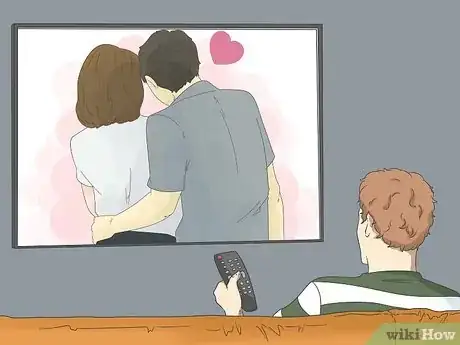

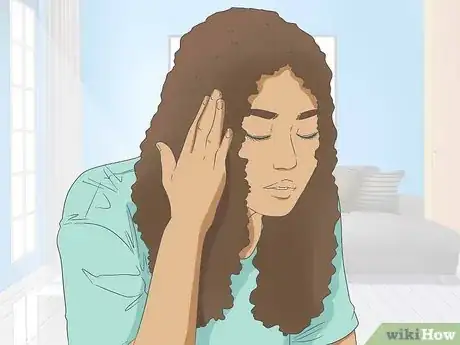


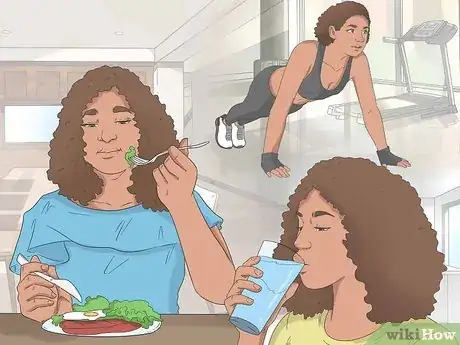
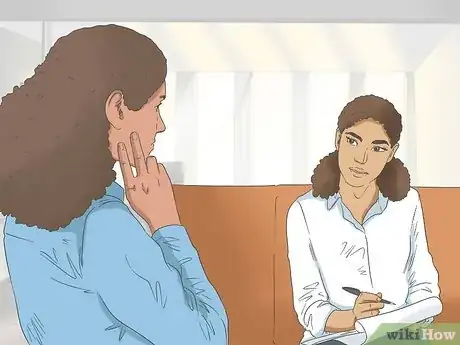
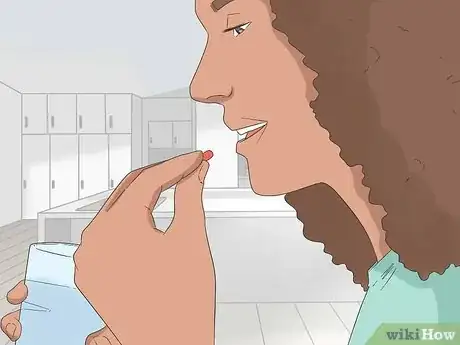
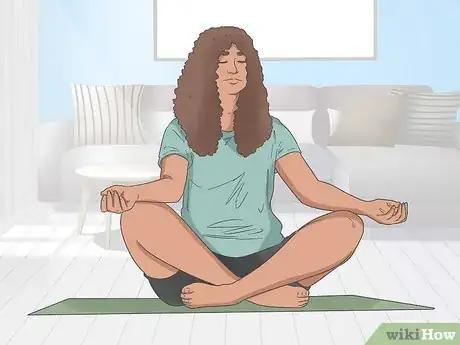
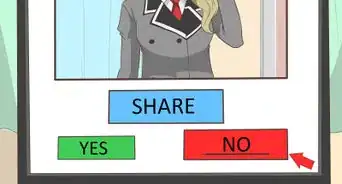










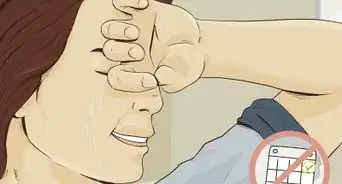













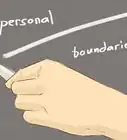





































Medical Disclaimer
The content of this article is not intended to be a substitute for professional medical advice, examination, diagnosis, or treatment. You should always contact your doctor or other qualified healthcare professional before starting, changing, or stopping any kind of health treatment.
Read More...